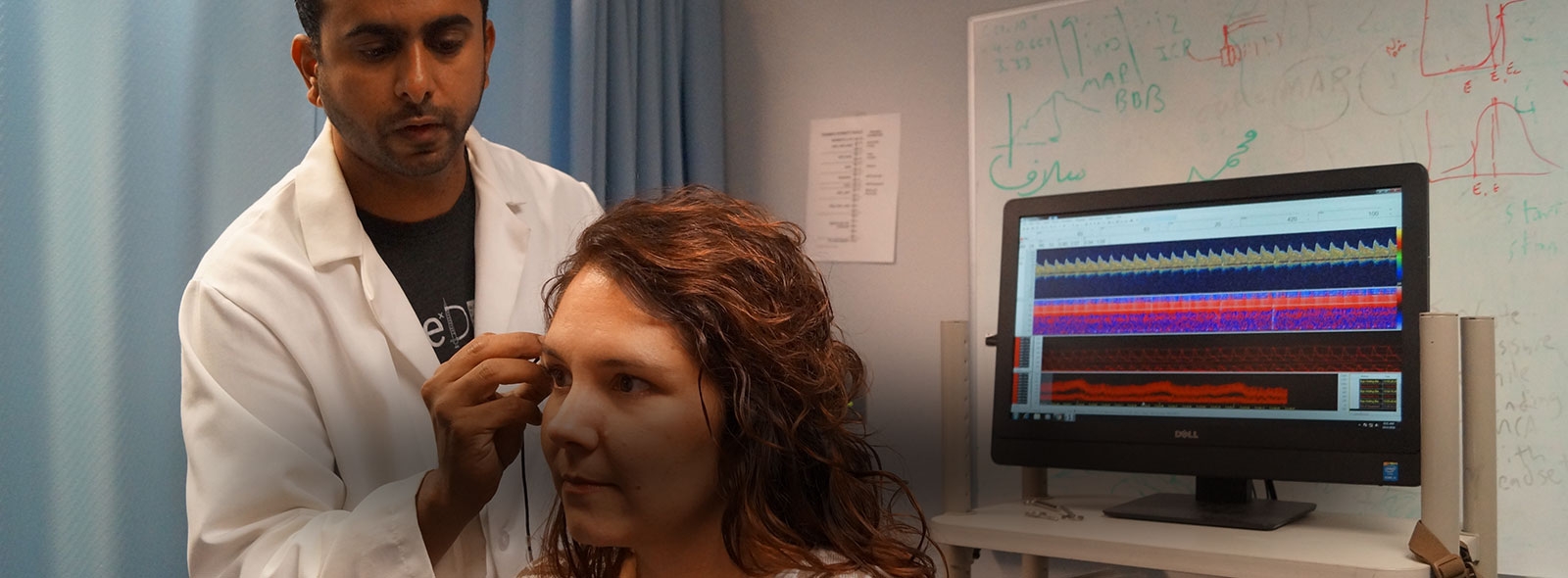Mohammed Alwatban
Ph.D. student, Biomedical Engineering
Saudi Arabia
Advisor: Dr. Greg Bashford
Expected Graduation: May 2018
Mohammed Alwatban came to Nebraska with the dream of learning about UNL’s biomedical engineering program and starting a similar program for undergraduates in his home country, Saudi Arabia. When he graduates with his doctorate in May 2018, he will have the tools to fulfill that dream and two other big dreams that came to life at UNL: advancing Alzheimer’s research and the educational opportunities of Saudi youth.
Alwatban chose UNL as a model for the biomedical engineering program he will start at his current employer, Qassim University in Saudi Arabia, because he knew the universities had a lot of similarities--both started as agricultural colleges--and he was impressed with the work of Professor Greg Bashford at UNL.
“I like the way Dr. Bashford treats undergraduates and gives them an opportunity to do research and be more engaged,” Alwatban says. “It opens my eyes. I see how I can do things this way back home.” Bashford also serves as Alwatban’s advisor, and the way he manages his lab helped Alwatban decide on his doctoral project, trying to detect Alzheimer’s disease early using transcranial Doppler (TCD) technology, which tracks blood flow in the brain using ultrasound waves.
“In our lab, Dr. Bashford gives you freedom to navigate and come up with your own ideas,” Alwatban says. “If you are unable to, then he will give you something to do. So the freedom I had helped me.” Alwatban looked at the wide array of state-of-the-art medical equipment available for use by graduates and undergraduates in the lab and pondered whether he might be able to find another application for the TCD equipment. He knew it measured blood flow in the brain, and he knew Alzheimer’s disease is characterized by decreased blood flow in the brain and in the capacity of blood vessels to dilate in response to carbon dioxide. Alzheimer’s disease, a deterioration of the brain leading to memory loss and death, has no known cure but afflicts about half of all people 80 or older and poses a huge problem as people increasingly live longer worldwide. Alwatban wondered if he could use the TCD equipment to test for Alzheimer’s disease. He applied for a grant, received funding and is now testing the device on subjects.
“Finding a device that could detect the disease in the early stages would be a big achievement for me in my Ph.D. program,” Alwatban says.
Doctors treat Alzheimer’s with a medication that improves blood flow to the brain, but by the time treatment is started, most patients are already in an advanced stage of the disease. Early detection is critical, but MRIs or CT (computed tomography) scans cost too much to be used to screen all elderly patients. Alwatban estimates that TCD equipment will cost only about $100 to scan a patient. “This device could be utilized everywhere, and it will save money and lives,” Alwatban says.
He hopes to continue to pursue Alzheimer’s research back at Qassim University and has one other dream for the university: the admittance of women into the biomedical engineering program. This dream came to him when his wife gave birth in Nebraska to their first child, a girl. “The moment I held my daughter when she was one day old, I was like, ‘I want to make my country a better place for my daughter,’” he says.
Until the past couple of years, Saudi women have not been allowed into engineering programs. Dammam University, which Alwatban and Bashford have been collaborating with, graduated Saudi Arabia’s first female biomedical engineers in 2016. Now another Saudi university has allowed women into its program, and Alwatban said he hopes his university, Qassim, will be the third to admit women. The impact of these women engineers could go far beyond Saudi Arabia’s borders.
“Saudi Arabia is important to everyone in the Middle East because it has the two most holy places in our religion, Mecca and Medina,” Alwatban says. “So, people look at it, and young girls look at it. If anything will happen in my country, it will reflect not only in the Arabic world but beyond that.”
Alwatban is eager to return to Saudi Arabia to see his dreams to fruition, but Nebraska has become a second home to him.
“It’s a beautiful place,” he says. “It’s a family-friendly place. People are nice. They’re always smiling. If I don’t go back to Saudi Arabia, I will definitely live here.”
— Ronica Stromberg, Biological Systems Engineering Department
